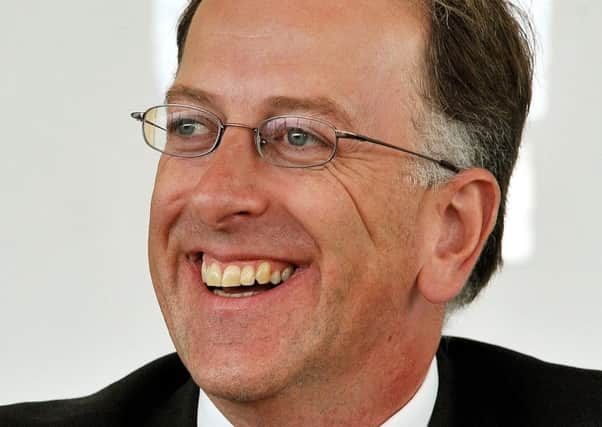IAAF denies blocking top athletes doping study


The Sunday Times said the IAAF vetoed a survey showing up to a third of top athletes at the championships in South Korea confessed to using banned performance-enhancing techniques in the previous 12 months.
It is the latest doping allegation to hit the governing body, which has come under attack amid allegations – which it strongly contests – that it is not doing enough to clean up the sport.
Advertisement
Hide AdAdvertisement
Hide Ad“The IAAF has never vetoed publication of this article,” it said in a statement on Sunday.
The IAAF said the study was a “social science based survey” conducted by the World Anti-Doping Agency and a team of researchers at the athletes’ village at the Daegu World Championships.
The IAAF, which said it answered concerns about the study when it was raised on a German television programme in 2013, claimed the article was rejected for publication by a scientific journal, having been submitted without its knowledge.
It also revealed it had “serious reservations” over the interpretation of the results received in the survey which were confirmed by “high-profile experts in social science” who reviewed the article for it.
“The IAAF submitted those concerns to the research group, but has never heard back from them,” the governing body said.
The IAAF said: “The purpose of the study was to assess the reliability of potential new methods of evaluating the prevalence of doping in sport using more of a social science approach (randomised-response survey).
“The survey was intended to be extended to multi-sport events and no publication was ever evoked. In fact, the survey was only ever repeated once, with a revised methodology, at the Pan-Arabic Games where mainly athletes were interviewed.”
The IAAF criticised the decision to leak the results of the study to the media before it was published.
Advertisement
Hide AdAdvertisement
Hide AdIt added: “The IAAF is continuing the prevalence study started in 2011 based on reliable, analytical results derived from the athlete biological passport programme. It is a priority for us and we aim at finalising an article for scientific publication, in coordination with Wada.
“The IAAF is the only sport federation to have conducted a prevalence study to date and we encourage other sports to do the same.”
The University of Tubingen in Germany, which led the research, was quoted by the Sunday Times as saying: “The IAAF’s delaying publication for so long without good reason is a serious encroachment on the freedom of publication.”
The results of the study reportedly show that 29-34 per cent of 1,800 competitors in Daegu admitted cheating.
“These findings demonstrate that doping is remarkably widespread among elite athletes, and remains largely unchecked despite current biological testing programmes,” the researchers concluded.
Lead author Rolf Ulrich was quoted as saying: “The IAAF is blocking it. I think they are stakeholders with Wada and they just blocked the whole thing.”
The IAAF has come out fighting in the wake of allegations by the Sunday Times and German broadcaster ARD that it turned a blind eye to potential mass doping in the sport, claims which have overshadowed the build-up to the World Championships in Beijing, which get under way on Saturday.
UK Athletics chairman Ed Warner believes “time will catch up with the cheats” eventually.
Advertisement
Hide AdAdvertisement
Hide AdWarner said doping within the sport had been going on for decades and would continue unless more was done to stop it.
He told BBC Radio Five Live’s Sportsweek programme: “When I took this job on eight-and-a-half years ago, in my first week a very senior person in athletics in Great Britain – going back a long period of time – took me aside and talked me through all the athletes that as a fan I’d watched for years, British and international, and told me they were cheats.
“At the time I was wondering whether this was something salacious on his part, he was sort of quite enjoying it, or whether he was reading me the witches’ warning.
“As time’s gone on, I’ve spent a lot of the last eight years having to deal with doping issues in our sport and I have concluded that he was basically reading me the witches’ warning.
“Never, never shut your eyes to the question of doping in athletics, it’s been here for decades and it will probably be here for decades to come because it’s an arms race.
“Time will catch up with the cheats, but it’s too late if you’ve missed the podium medal opportunity.
“The key issue for me is – are there cheats in the sport and is enough being done to root them out?”